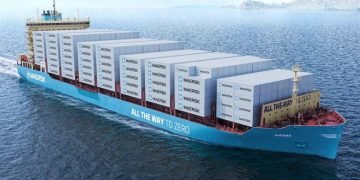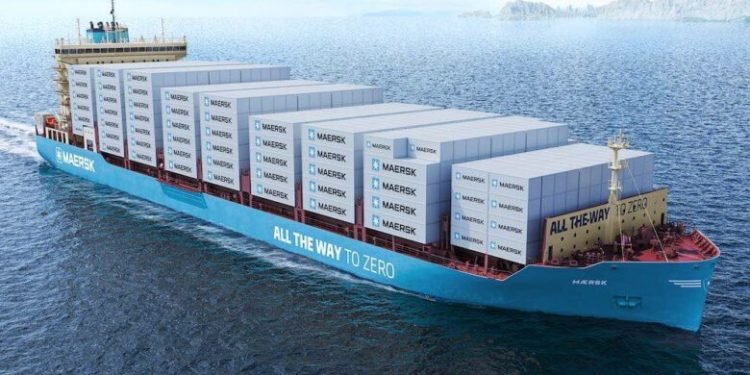Ulsan, South Korea
By Maria Kalamatas | The Logistic News
May 26, 2025 – Section: Maritime
In a move that further cements its leadership in maritime sustainability, A.P. Moller – Maersk has officially added a new methanol-powered container ship to its growing low-emission fleet. The vessel, named Albert Maersk, was delivered yesterday from Hyundai Heavy Industries in Ulsan, South Korea.
This marks the 11th ship of its kind in Maersk’s next-generation series of dual-fuel vessels. Designed to run on either conventional marine fuel or green methanol, the ship is equipped to transport over 16,000 TEUs — combining capacity with carbon-conscious engineering.
“This vessel is not just another delivery; it’s part of a larger shift,” said Vincent Clerc, CEO of Maersk. “We are transitioning from ambition to action — and the Albert Maersk is proof of that.”
Green methanol, produced from renewable biomass and captured carbon, has emerged as a key alternative in shipping’s decarbonization path. When used instead of traditional bunker fuel, it can cut lifecycle emissions by up to 80%. For Maersk, this is not just a climate win — it’s a business strategy in motion.
The company plans to operate the Albert Maersk on core trade routes between Asia and Northern Europe, where demand for lower-emission shipping is rising among major cargo owners.
Alongside vessel investment, Maersk has secured supply agreements with several green methanol producers to ensure regular refueling. These partnerships are designed to support both the company’s operations and the broader development of a clean fuel economy in shipping.
“Reliable access to green methanol is critical,” said Emma Mazhari, Maersk’s Head of Energy Markets. “That’s why we’re not just building ships — we’re helping build the supply chains that power them.”
By the end of this year, Maersk expects to have 19 methanol-powered ships in operation. The company sees this fleet as the foundation for meeting its 2040 net-zero target, and as a direct response to customer demand for greener logistics options.
Maritime analysts say the approach could influence broader industry standards. With pressure mounting from regulators and cargo owners alike, scalable clean-fuel solutions are no longer theoretical.
“This isn’t about experimenting with prototypes anymore,” noted one European maritime consultant. “It’s about deploying commercially viable solutions that clients can trust.”
As one of the busiest container carriers globally, Maersk’s latest vessel represents more than a ship. It’s a signal that the future of ocean freight is already taking shape — and it’s running on cleaner fuel.
✎ Maria Kalamatas
Senior Correspondent – Maritime & Sustainability
The Logistic News























